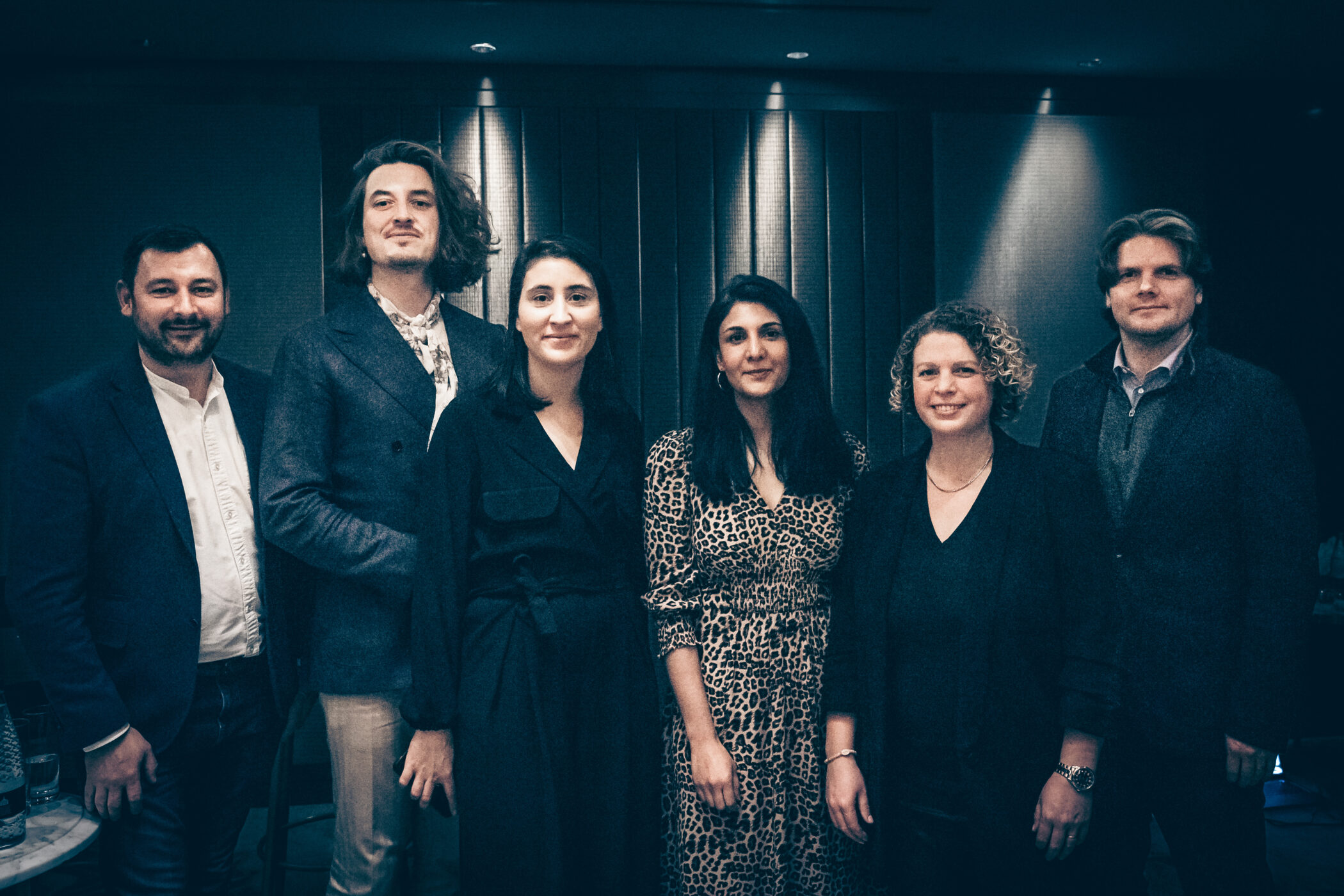During the launch event for Globetrender’s 2023 Travel Trend Forecast at the Shangri-La the Shard, London, we hosted a panel discussion with five travel experts who shared their predictions for the year ahead.
Attended by 140 senior members of the media and travel industry, the conversation touched on everything from the imminent boom in outbound Chinese travel, cannabis tourism, low cost, low season travel, and the generational differences in demand for sustainable tourism; to Indigenous-led tours, tourism taxes, Geo Arbitrage, Netflix-inspired trips, and the power of group travel to help people forge friendships.
Tim Hentschel, co-founder and CEO of Hotel Planner, the sponsor of Globetrender’s 2023 Travel Trend Forecast.
A lot of people will be very price conscious in 2023. What do you predict for hotel pricing in the year ahead?
“There was forecasting that 2023 prices at hotels would come down about 10 per cent because they has been at historic highs in 2022. But what we are seeing is that they are holding price quite nicely right now. Demand is still increasing and now with China opening up there is going to be a lot of demand so hotels are going to be able to hold price for a lot longer. I think we will see a lot more corporate negotiated rates coming back in to the market – that could start to bring rates down a little bit, at least on weekdays.”
What travel trends do you think will be most interesting in 2023?
Hentschel says: “Cannabis Tourism is really significant. I remember when Colorado first made cannabis legal in the US and hotel room rates in Denver doubled. If you look at tourism to Amsterdam, hotel rates are always US$300-US$400 a night. Exchange Rate Travel is interesting as we have seen the British pound and the euro weaken against the US dollar, we had tonnes of North Americans coming to Europe.
“The biggest trend that we see moving forward is probably the rebound of group travel – it started with big events such as the World Cup and now we see bookings for weddings at an all-time high. We will also see a robust rebound for the corporate group and events sector.”
Andy Washington, general manager EMEA for Trip.com
The reopening of China is big news for the global travel industry. What is your perspective on what this will mean for both inbound and outbound tourism in 2023? What booking trends have you observed so far? What do you predict for the months ahead?
Washington says: “What it has meant for me first is that my budget has gone up for the year. We are a Chinese business and now that China has now finally open to travel again it has boosted us. That China Boom is great news for us but it is also great news for the industry. The Chinese consumer travels for long periods of time and are high spenders in the hospitality industry.
“In spite of the cost of living crisis, we are still seeing people spending as part of that bounce-back from the pandemic. And we are already seeing it from Chinese consumers as well. On the first morning of the announcement on December 27, 2022, Trip.com Group recorded a staggering 254 per cent increase in mainland China’s outbound flight bookings compared to a day earlier. And for Chinese New Year we expect the biggest mass movement of Chinese travellers ever. There is so much pent up demand.
“Chinese travellers will still be conscious of health, though – they will want hand sanitiser at the check-in desk, they will still want to wear their masks, because that is where we were 18 months ago. We know what patterns are going – we know Covid infections are spiking in China, no matter what governments will or won’t say. I see it from my teams in Shanghai. But you will see that market bounce back hugely.”
What is Trip.com doing to specifically target younger generations of travellers? How will Gen Z be travelling in 2023?
Washington says: “Our target market is Gen Z and Gen Y. I have been in travel for 31 years now and I remember when we used to be saying we must have an app because everyone else have one. Now I look at my son and he does his homework on his phone and I can’t get my head around it. Younger generations can use phones for everything and it’s the only thing they use. They will want sustainable travel, Instagrammable trips, they will want to take those trips to Bhutan where they are giving something back. But there is still a mass market for beach travel and that is not going to go away.”
In 2022, Trip.com Group conducted its first-ever Sustainable Travel Consumer Report, which revealed that nearly 80% of the 7,700 people questioned said they attached great importance to sustainable environmental factors when travelling, and nearly 70% of respondents said they were willing to pay higher prices for more sustainable travel options. Tell us more about this.
Washington says: “There is a real generational gap in the market. Younger generations will pay for carbon offsetting, for example, but the older generations won’t. In reality, mass market travel represents 65 per cent of travel globally – the majority of people head to the same ten cities.”
What does sustainable travel actually look like in reality?

Washington says: “Sustainable flight is years and years away because of cost. As an industry, as a booking platform, that is where we need to fight and have the whole industry come together. Otherwise nothing will change.”
Zina Bencheikh, managing director EMEA of Intrepid Travel
A number of countries are already taking a tough stance on Chinese travellers. You’re based in Morocco a lot of the time – how has this country responded?
Bencheikh says: “Not surprisingly, Morocco has responded very strictly. Morocco is the only country to have completely banned people of any nationality travelling from China to enter the country.
Are you anticipating demand for Intrepid trips to China as the months go on? What destinations will you be focusing on in 2023?
Bencheikh says: “The reopening of China is a great boost for us as well as an inbound operator. We have trips for sale that we hope to be running in the next few months – we are still waiting and assessing the situation on the ground and also the visa situation because it is still not clear for leisure travel. We believe that 2023 will see the big return of Asia – in 2022 it was still lagging behind Europe, the Middle East and Africa.”
In our 2023 Travel Trend Forecast we highlight the trend for Low Cost, Low Season travel in 2023. Can you share your perspective on this trend from the point of view of Intrepid Travel? And what about the trend for Long-Term Planning – how is this manifesting?
Bencheikh says: “I think linking low cost and low season together in your Globetrender 2023 Travel Trend Forecast was really interesting. We have been doing low season travel since we began – it’s a way to combat overtourism and take people to destinations during less crowded periods.
“Low season travel is very sustainable. And as well have see from the heatwave in Europe last summer, it is becoming less enjoyable to travel during typical peak seasons. Even though there is an incoming recession we are selling more trips now than we were in 2018, however, people are looking for a good deal. We had a big cyber sale in November 2022 and we achieved our biggest sales days ever.”
What about long-term planning?
Bencheikh says: “We are already seeing bookings for 2024. There is a lot of demand for complex itineraries to places such as Antarctica and the Inca Trail. We also noticed people booking far ahead during the pandemic so that they had trips to look forward to.”
Intrepid Travel is the travel industry’s largest B Corp, and has been a carbon neutral operator since 2010. What initiatives are you spearheading for 2023 when it comes to sustainable and responsible tourism?
Bencheikh says: “Sustainable travel has been part of our DNA since we first existed. Even though we have been carbon neutral since 2010 we don’t think that is the long-term solution. For the last two years we have been working on a decarbonisation plan in line with science-based targets that have been verified. We have removed internal flights from our top 50 itineraries, for example, and use ground transport instead. We have also partnered with a flight-free travel company called Byway.
“We are also driving the Indigenous Appreciation trend with the launch of 100 Indigenous-led tours. People can stay in local places, learn how to cook, carve masks and learn about rituals, for example. It started in Australia, which is where our company is headquartered. We want to give our customers the opportunity to learn from local communities and cultures and break the barriers that can exist. Some of our customers have told us it’s been life-changing to have learn about Aboriginal culture, for example. We have now extended the concept to the US, Latin American and Africa, and they have been very popular.”
Damien Gabét, freelance travel journalist for titles such as The Independent and The Guardian
You recently travelled to Bhutan, which is a country that only recently opened up to tourism and has also introduced an unprecedented new tourist tax of US$200 per person per night. Can you tell us about your experience? How were you received?
Gabét says: “I went to Bhutan in November 2022 to write about the new Trans Bhutan Hiking Trail. What I noticed when telling other people going there was ‘Oh my god I am so jealous’ – it elicited the most amount of jealousy on Instagram for me, which is interesting in itself. But then they would say: ‘What about that US$200 a day tourist tax? And isn’t that the place that does the Gross Domestic Happiness Index?’
“Having now gone there, what I have realised is that these two things are inter-connected. Whilst that fee does seem very high on the face of it, a low-volume, high-yield model works exceptionally well for them. The reason for that is because it doesn’t take long for you to realise that they are very committed to sustainable, ecologically minded travel. Now obviously that means fewer tourists but it under-pins everything that they do.
“The tourist taxes go directly into supporting rural communities to mitigate the advance of super-rapid urbanisation that is taking place. Young people get free education and healthcare and they all want to go to the city. The tourism taxes are giving people a reason to stick around in the countryside.
“I was received exceptionally well – they are just so happy all the time. But also by the fact that there were fewer tourists, there was a mutual curiosity – it was symmetrical relationship that you don’t get very often. Therefore it made for more sincere, memorable and meaningful experiences.
“The final thing to note is that yes it is US$200 a day but when you get there, it is very cheap. You are talking US$1 for a beer and US$5 for dinner. It is not very expensive to stay in hotels unless you are going super lux. That price tag is not as big as it seems and I think it is a very good idea.” (Read his piece for The Independent.) As a travel journalist you are on the road a lot. I recently interviewed you for Globetrender’s premium newsletter VOLT on how you are leveraging the trend for Geo Arbitrage, whereby people work remotely from a cheaper country to save money. Do you think this is something that will catch on in the year ahead, given the cost-of-living crisis?
As a travel journalist you are on the road a lot. I recently interviewed you for Globetrender’s premium newsletter VOLT on how you are leveraging the trend for Geo Arbitrage, whereby people work remotely from a cheaper country to save money. Do you think this is something that will catch on in the year ahead, given the cost-of-living crisis?
Gabét says: “I think Geo Arbitrage has already caught on. I spoke to a friend in Lisbon yesterday and she said ‘Oh my god it feels like Shoreditch [a trendy area of east London] here. There are so many English voices’. That speaks to the nature of this. It is super fast moving.
“I fall under the lamentable digital nomad label so for me Geo Arbitrage is a complete no-brainer. First of all, I live in Margate [a seaside town on the English coast] which is a frozen wasteland in winter. Also I am travel writer earning travel writer money in a cost of living crisis, in England. So I feel very much like I am being pushed away into the warm loving embrace of southern European countries (by the way, the best wifi in Europe is in Romania) or central American countries or certain countries in Asia.
“Obviously we associate Geo Arbitrage with a certain kind of person – childless, cryptomaniacs. But that is a somewhat outdated view of those people. I am noticing young families doing it. A lot of people worry that Brexit is a problem but I am here to tell you that it isn’t – obviously you can only stay in Europe for 90 days out of every 180 days but there are so many digital nomad visas coming out and they are super attractive. You can be in a destination for 12 months, get great tax breaks if you are earning in that space, and usually you can renew for up to five years, by which time you could apply for residency.” As a journalist you travel to all manner of places on all kinds of assignments. What’s on the horizon for next year? What travel trends do you think are going to be hot topics in the media this year?
As a journalist you travel to all manner of places on all kinds of assignments. What’s on the horizon for next year? What travel trends do you think are going to be hot topics in the media this year?
Gabét says: “I get a lot of ‘nos’ as most travel writers do but the sort of thing commissioners are interested in are articles on longer, slower and more meaningful travel. Another trend that really resonates with editors is one that Black Tomato has been talking about, which is “Storyfication” where you see a destination on Netflix and you want to go to there. [This was originally identified by Globetrender in an issue of our premium newsletter VOLT – we called it “Limelight Locations“].
“This trend really works for commissioners – last year I went to the Deep South and stayed in Elvis’s childhood home ahead of the new film that came out about him. I am sure Emily in Paris is doing wonderful things for the French capital.” (Here is his piece for Metro.)
Radha Vyas, co-founder and CEO of Flash Pack
Why do you think 2023 will be a good year for travelling with a group of strangers? What are people drawn to and why is this significant post-pandemic?
Vyas says: “I think 2023 will be a great year for travel because Covid has just accelerated all the trends that we were capitalising on before Covid. And back then we were pushing these messages of friendship, community and connection as super important but because of our collective isolation it is well understood that meaningful connection has a profound impact on your mental wellbeing. It eases depression and increases your self-esteem. In fact it has now been studied that chronic loneliness has the same impact on you physical health as smoking 15 cigarettes a day.
“That is the next epidemic that we are focused on at Flash Pack. We see ourselves as a platform that connects people at the same life stage – we have become completely obsessed with getting the group dynamic exactly right on every single trip so that friendships can flourish. And travel as we all know is such a powerful vehicle for creating friendships, fast. If you abseil down Table Mountain in Cape Town and then go for a drink after – you become fast friends.” It’s also worth noting that Flash Pack went bankrupt during the Covid crisis – tell us briefly about your come-back and how bookings are looking now?
It’s also worth noting that Flash Pack went bankrupt during the Covid crisis – tell us briefly about your come-back and how bookings are looking now?
Vyas says: “We were very fast growth before the pandemic – my co-founder and husband Lee and I started the company in our back bedroom in 2016. We scaled the company to 60 staff just before the pandemic with no external funding. We were turning over US$20 million a year. Then the pandemic hit and we didn’t have a war chest of external reserves to fall back on or external investors that wanted to protect their investment. We were just out there on our own.
“To cut a very sad and long story short, we went bankrupt. But miraculously found a funder five months later who backed our vision for community travel and knew it was going to be massive after Covid, and helped us relaunch in November 2021. And now it’s going gangbusters again. We are back to having 40 staff and growing really well.
“In terms of bookings, Flash Pack has tended to be used by spontaneous solo travellers booking one to three months in advance. But now we are seeing customers booking up to 12 months in advance. Some of that is self-perpetuated because we under-estimated our growth and ran out of product but my hypothesis is that consumers are trying to save costs on flights by booking in advance. Even for our customers who have a lot of disposable income – the average booking is £3,000 without flights.”

